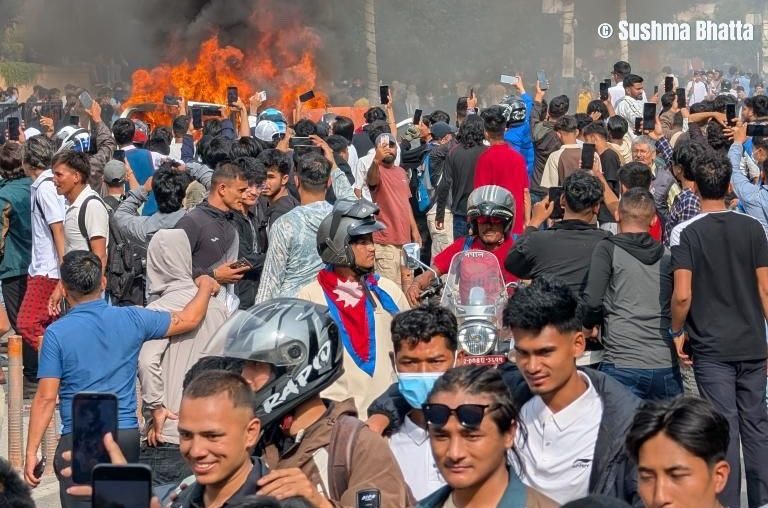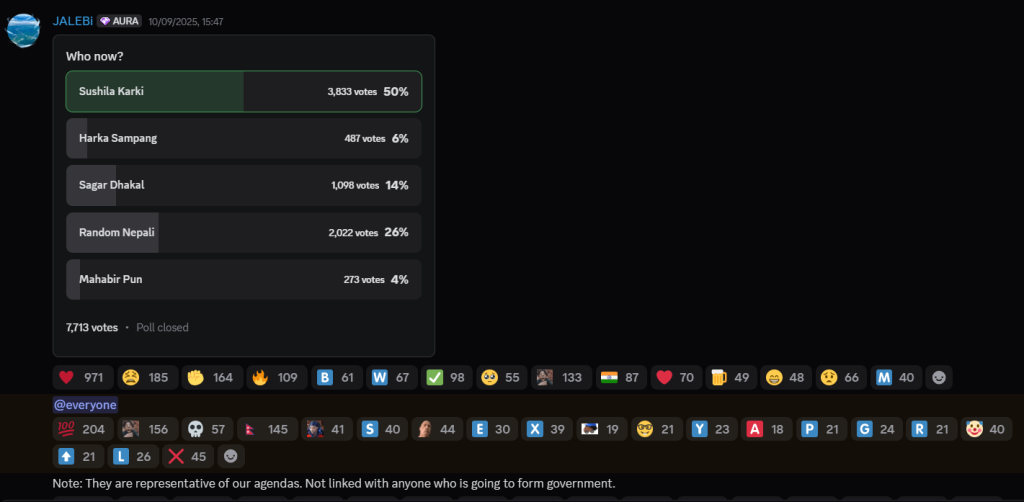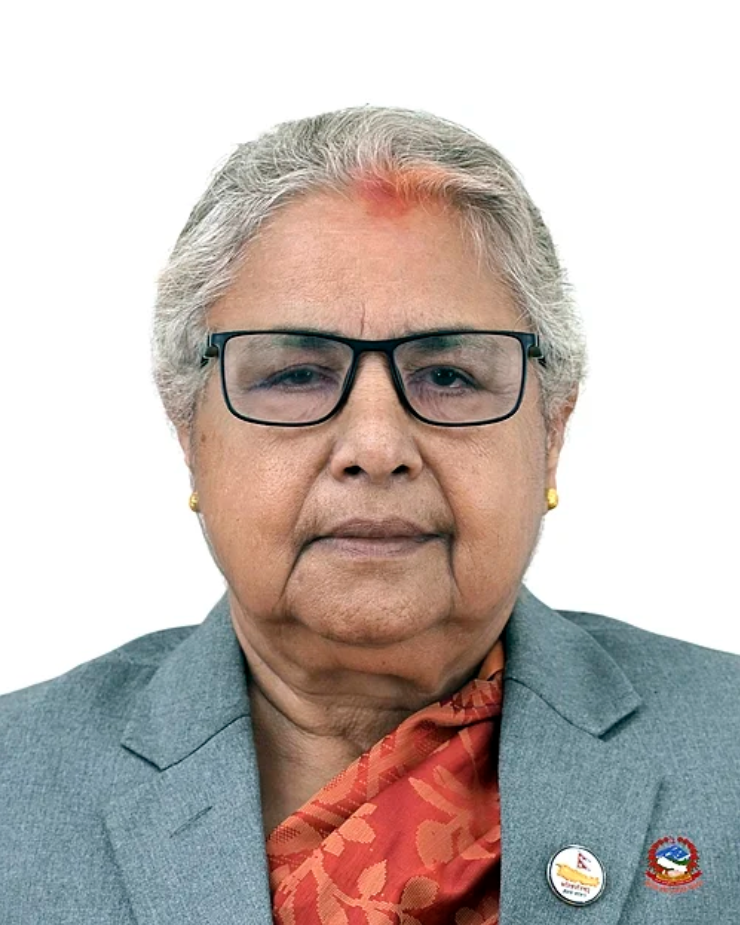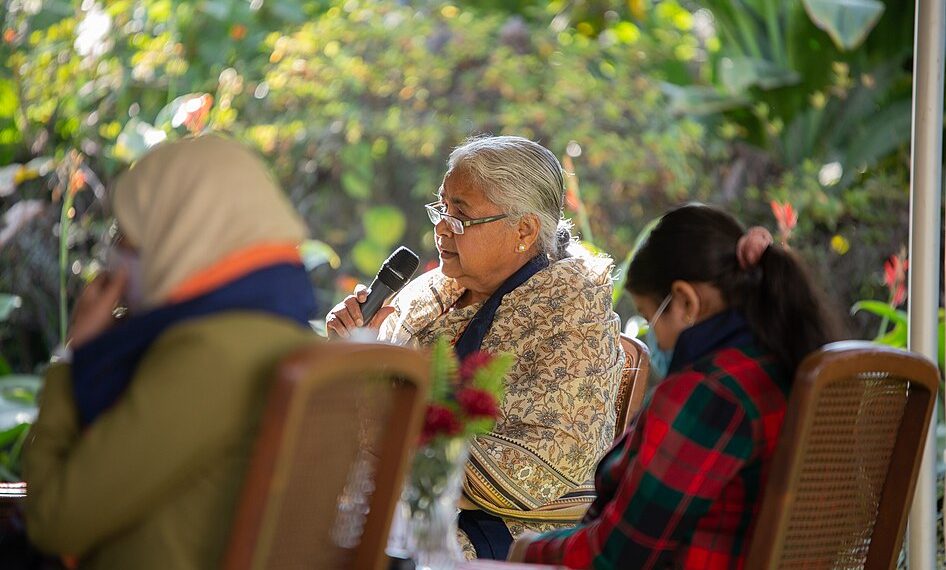Nepal is once again in the middle of a political transition. Following just days of unrest led by “Gen-Z” protesters and the resignation of then Prime Minister Oli, the country appointed former Chief Justice Sushila Karki as its interim prime minister. Her elevation marks a historic milestone in the ways of Nepal’s first female prime minister and the unusual circumstances that brought her to office.
Background and Career
Sushila Karki was born in 1952 in Biratnagar. After completing her early education in Nepal, she studied political science at Banaras Hindu University in India before earning a law degree from Tribhuvan University in 1978. She went on to teach at Mahendra Multiple Campus in Dharan and later practiced law.
Her involvement in politics began early. During the 1990 People’s Movement, she was imprisoned for her participation in the campaign against the Panchayat system. Later, she published a novel, Kara, inspired by her experiences in jail.
Karki’s experience and expertise are shaped in Nepal’s legal system, becoming the country’s first female Chief in 2016. She is known for her independence and strong stance against corruption as she presided over several important cases — including corruption scandals involving senior officials. Her tenure was controversial. In 2017, she was suspended after parliament-initiated impeachment proceedings against her, following the Supreme Court’s decision to overturn the politically motivated appointment of a police chief. The impeachment move was widely described as a political move and was eventually dropped. Karki retired the same year upon reaching the mandatory retirement age.
The Gen Z Protests and Oli’s Resignation
On September 8 and 9, young protesters across Nepal took to the streets to demand an end to corruption and political nepotism. Anger had been brewing over the lavish lifestyles of political elites’ children— “nepo kids”—who flaunted their privilege online. The situation escalated after the government banned more than 20 social media platforms.

Protests quickly turned violent. Demonstrators stormed parliament, set fire to government buildings, and freed prisoners from jails. Security forces responded with force, leaving an estimated 72 people dead. The scale of the unrest forced Prime Minister Oli to resign on September 9, along with several ministers.
With parliament dissolved and a power vacuum at the centre, the country needed a way forward — an interim government that could prepare the country for early elections.
The Discord Vote
Unlike previous transitions, protesters sought to directly shape leadership. On Discord, organizers held a poll to determine a Gen Z-backed representative who could lead the interim government.
The poll lasted just 54 minutes but drew 7,713 total votes. Sushila Karki emerged as the clear winner, securing 50 percent of the votes cast. The decision reflected the protesters’ search for a figure with a clean record and independence from entrenched party politics.
Although 73 years old and far removed from the protesters’ generation, her reputation as an anti-corruption figure made her acceptable to the movement. Based on the outcome, and with agreement from the president and security forces, Karki was appointed interim prime minister on September 12.

Since assuming office, Karki has made it clear that her government is temporary and will serve for no more than six months. Her primary responsibility is to stabilize the country and oversee free and fair elections, scheduled for March 2026.
Her early decisions have focused on forming a credible cabinet and addressing the concerns raised by the protesters. She appointed Om Prakash Aryal as home minister, Rameshwar Prasad Khanal as finance minister, and Kulman Ghising as energy minister. These appointments were viewed as attempts to install experienced and relatively independent figures in key positions.
Karki has also pledged to investigate the violence that occurred during the protests and hold those responsible accountable. She has acknowledged the central demands of the protesters—ending corruption, ensuring good governance, and addressing inequality—but her ability to deliver meaningful reforms is limited without a functioning parliament.
Public Perception and Expectations
Karki’s appointment is seen as both symbolic and practical. Symbolic, because she represents integrity in a corrupted system; practical, because her interim role will prepare her for elections rather than carry out long-term reforms.
The public has largely expressed support for her, despite her not actually fitting the “ideal age criteria,” which was always a concern, as political leaders like Oli, Deuba, and Prachanda never left their power. Karki’s track record reflects a trustworthy, experienced individual to oversee the transition, while waiting for younger leadership in the elections ahead.

The interim government’s present is muddled in the aftermath of the 48-hour revolution. Law and order remain fragile, with lingering resentment from the heavy-handed security response. Economically, the protests disrupted businesses and damaged private property, further unsettling a country already struggling with inflation and unemployment. The tourism sector, which contributes nearly 7 percent of GDP, faces uncertainty at the start of its peak season.
Constitutional questions also remain. Some political voices are calling for a shift to a directly elected presidential system. Whilst opportunists are awaiting a chance to strike back. As major structural changes cannot be made under Karki’s interim government, the 6 months will be a fragile period for the government and the future it holds.
For Karki, the central challenge will be primarily to ensure the credibility of the March elections and then maintain stability, restoring public confidence.
A figure once sidelined by the systemic corrupt government has returned to national leadership, not through traditional political channels but through the backing of a youth-led movement in discord votes, which is as Gen Z and revolutionary as this movement could get.
Her government is temporary, but the expectations placed upon it are high. If the interim government can steer Nepal through the transition without scandal and deliver credible elections, Karki will leave a lasting mark on the country’s democratic trajectory.
Sudipa Mahato is a junior editor with Nepal Connect.


